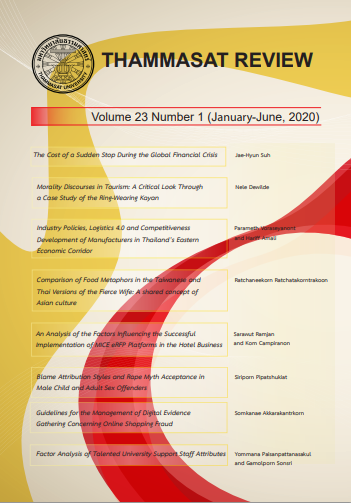The Cost of a Sudden Stop During the Global Financial Crisis
Keywords:
Banking crisis, Global financial crisis, Sudden stopAbstract
A sudden stop designates a sudden slowdown in private capital inflows and a corresponding sharp reversal from large current account deficits into smaller deficits or small surpluses (Calvo, 1998). This paper studies the effect of it on 19 emerging market economies and 20 advanced economies during the global financial crisis using a panel data set. To my knowledge, while there is a large amount of literature that studies the association between sudden stops and regional financial crises, such as the Latin American crisis and the Asian crisis, there are relatively few studies on the association between the former and the global financial crisis. I hypothesize that it also had a significant impact on both country groups during this remarkable event. The results show that a sudden stop had surged during the global financial crisis regardless of whether countries experienced banking crises or not. Furthermore, although the impact of it on both country groups was detrimental, it was more harmful to emerging market economies than advanced economies. These results are not surprising if we take into account global financial cycle theory which states global risk aversion plays a dominant role in capital flows between countries. Indeed, they suggest policymakers should be especially careful about the possibility of a sudden stop and additional costs from it when there is a severe global recession.
Downloads
Published
How to Cite
Issue
Section
License
The opinions and ideas expressed in all submissions published in Thammasat Review are solely that of the author(s) and do not necessarily reflect that of the editors or the editorial board.
The copyright of all articles including all written content and illustrations belong to Thammasat Review. Any individuals or organisation wishing to publish, reproduce and distribute a particular manuscript must seek permission from the journal first.








